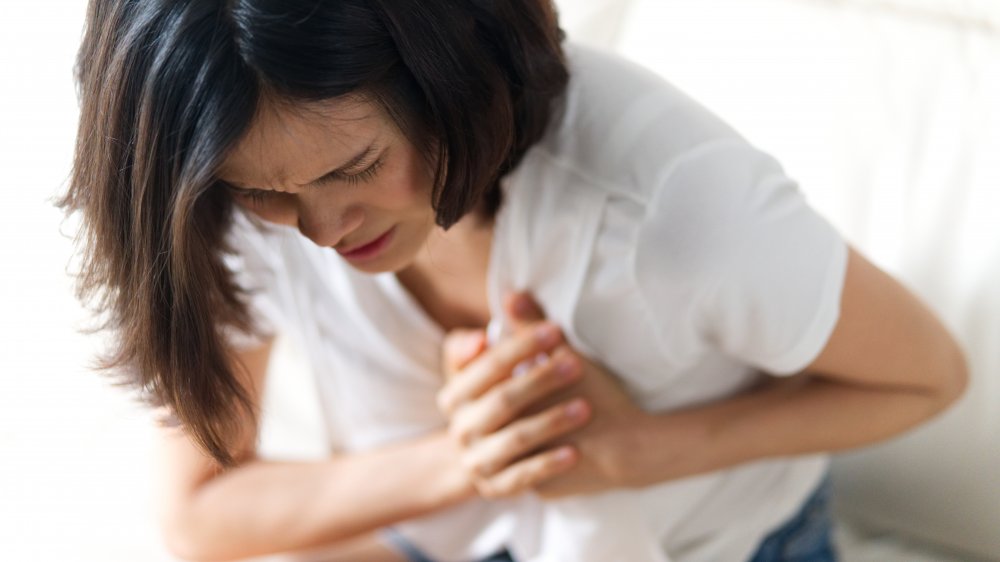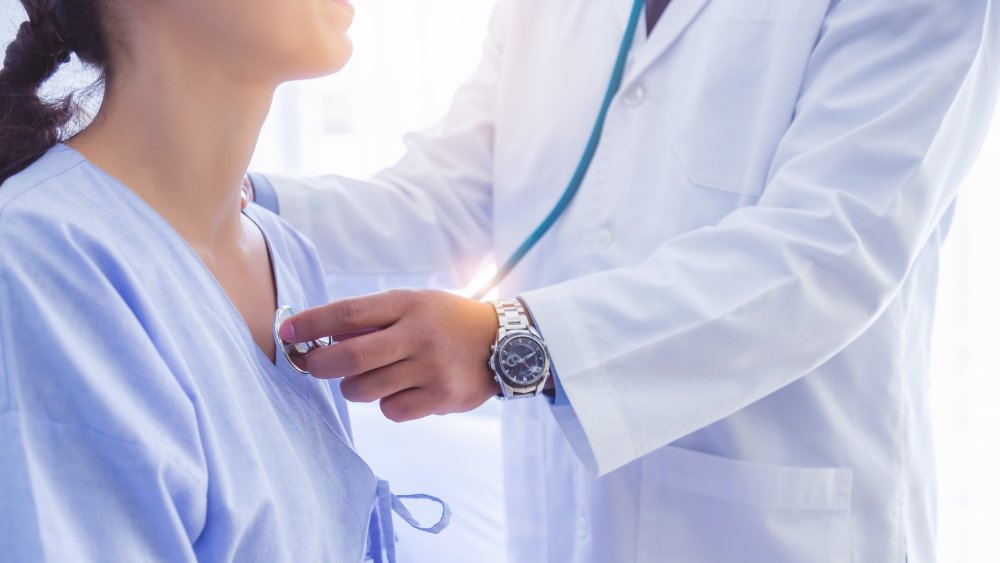The First Thing To Do When You Have Chest Pain, According To A Doctor
One of the scariest symptoms you can experience, especially if it just hits you out of the blue, is chest pains. The first thing that comes into your mind may be, "Am I having a heart attack?" Dr. Michael Billet, who works in the Emergency Department at Mercy Medical Center, has seen a large number of patients who come in complaining of chest pains as a primary symptom, and he says there are actually a wide variety of ailments that this symptom might indicate. Heart attacks, blood clots, and tears in the aorta are the afflictions ER docs find most concerning, but chest pain might also indicate muscle strain, chest wall inflammation, or even acid reflux.
So how do you know what your chest pain might mean? Dr. Billet says you don't, nor should you even try to self diagnose, because "it's difficult to determine the cause of the pain through symptoms alone." He explains that "even an experienced ER doctor is relying on a detailed history, exam, and tests that usually aren't available to people at home," so advises that you leave diagnosing to the medical professionals.
What you should be doing if you have chest pains
Dr. Billet recommends that if the pain in your chest is something "new, worse, or different from pains [you]'ve had before," you should be seen by a doctor ASAP, and the quickest way to be seen is to pay a visit to your nearest emergency room. While you might think that your actions should depend on the cause of your chest pains, Billet reiterates that you probably won't be able to pinpoint the exact cause of these pains on your own, so a doctor should always be consulted.
If you are experiencing pain that comes on very suddenly and/or is very severe, if the pain seems to travel outside your chest, or if along with your chest pains you're experiencing shortness of breath, are feeling nauseous, or you break out in a sweat, you shouldn't even bother with heading to the emergency room. In such a case, Billet advises calling 911 for an ambulance transport as these symptoms could indicate that something really serious is going on and time is of the essence. He also says that you shouldn't be embarrassed if it turns out that you're not really at death's door, since it's better to be safe than sorry, telling us: "I'd rather see 100 people come in for acid reflux than miss one heart attack."

